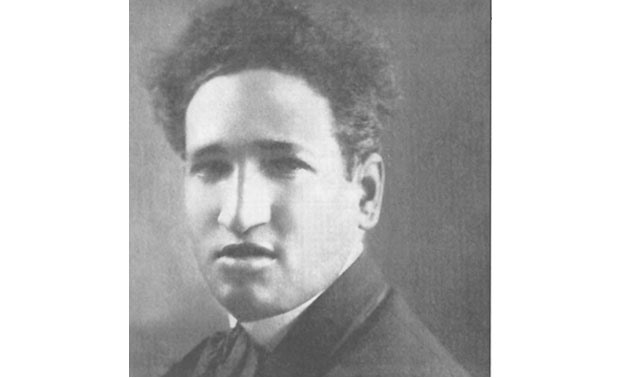
Sayed Darwish (Photo: Wikimedia)
CAIRO – 17 March 2020: As Arabic music continues to develop in different hues and colors; one iconic music composer that still resonates in the sphere of music productions is Sayed Darwish, whose warm memories revive on his birthday on March 17.
Born in 1892, the ambitious singer was raised among seven children and used to work as a bricklayer to provide for his family. He was discovered by a manager of a theatrical troupe who overheard him singing while working and decided to hire him.
Dying at the dawn of his striking career at age 31, Darwish has pursued his career amid touring in Syria where he embarked musical education and has later returned to Egypt where he was rarely recognized as he sang in coffee shops before the Great War.
Despite his limited recognition at the time, Darwish was given the opportunity to collaborate with the significant composers of that century after being trained to be a ‘Munshid’ (Cantor).
The Alexandrian singer/composer is well known in modern Arab music historiography for symbolizing progress, modernity, and the transfer from ‘Oriental music’ that was made for the elite class at the time and from Ottoman music to Egyptian music, according to an article published by Al-Mashriq.
Darwish was haunted with several failures in his early singing career; however 1918 has been earmarked as a turning point where he was inspired by the renowned Arabic lyricist Salama Higazy.
 Sayed Darwish (Photo: Wikimedia)
Sayed Darwish (Photo: Wikimedia)
Known as an experimental artist, Darwish has also been recognized as a long living icon of nationalism, composing the famous Egyptian national anthem, “Biladi Biladi”, and the revolutionist “Oom Ya Masry” (Get up Egyptian) that played a great role in the revolution of 1919.
The composer’s first hit song, “The Beautiful One”, was released in 1912. Darwish is also known for singing and composing “Salma ya Salama” that has been recreated in various covers including a cover by the late singer Dalida. Other compositions included “El Helwa di Kamet Te’gen” that was also recreated into a new cover sung by Lebanese Fayrouz and were re-produced in orchestral versions.
Darwish has later met with cinema legend Naguib al-Rihani in Cairo where they both worked together to compose seven operettas alongside comedian Kish Kish Bey. The trio has conducted works such as “Al-Ashara Al-Tayeba" (Ten of Diamonds) in 1920 which is a patriotic adaptation of “Blubeard”.
 Sayed Darwish (Photo: Wikimedia)
Sayed Darwish (Photo: Wikimedia)
While working within the trio, Darwish has also managed to collaborate with Ali al-Kassar’s theatrical troupe and singer/actress Mounira al-Mahdeyya where they both composed comedian operettas including “Kollaha Yomein” (It will just take two days) in 1920.
They also conducted an opera called “Cleopatra and Mark Anthony” where the singing/ acting legend Mohamed Abdel Wahab has starred as the leading role. Darwish has also composed “Shahrazad” and “Al-Baruka” performances that have not received a recognizable share of success.
The late artist's theater productions were often westernized as the traditional Arabic Takht is replaced by European ensemble and conducted by Il Signore Casio who was Darwish’s maestro. Darwish’s operetta tunes are famous for combining musical modes with piano that tend to reveal a fascination for Italian opera.
The first Egyptian composer to improvise tasks that were usually done by the singer and the instrumental cast at the time, Darwish, has risen in fame to work exclusively with three recording companies such as Mechian that was run by an Armenian immigrant, German company Odeon, and Baidaphon.
Darwish, a great improviser of Arabic music, has left an honorable music heritage that continues to generate through current and upcoming generations. The music legend, however, was suspected to have been assassinated and did not die due to a drug overdose, according to an article published by Al-Arabiya.
Hany al-Halawany a scenarist in Cairo Cinema Institute has suggested in 2004 the re-opening of the reasons behind the singer’s death. The singer was suspected to have been assassinated by advocates of the British invasion at the time who were said to be angered by Darwish’s nationalistic notion that was a popular voice of Egyptians.
Egyptian government has recently renovated his home in Rod al-Farag last week alongside streets surrounding it; in means to honor the late singer on his death anniversary, according to state-owned newspaper Al-Ahram.


Comments
Leave a Comment